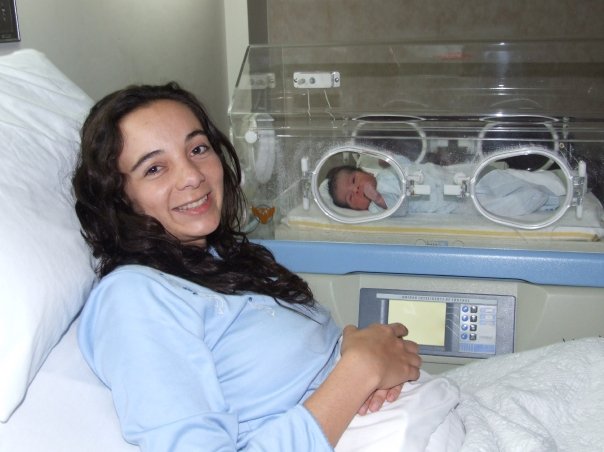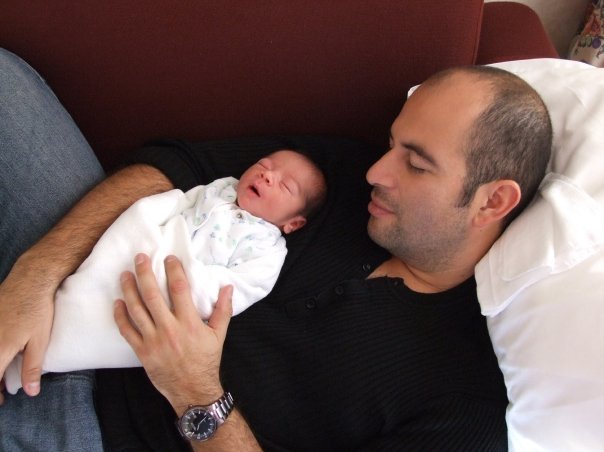This is part of a sponsored collaboration with MedImmune and Latina Mom Bloggers. However, all opinions expressed are my own.
My little girl was born at 37 weeks, she had a low birth weight, weighing only 5lb and she also had trouble breastfeeding. When my daughter was only 3 months old I had to go back to work. Needless to say being away from her was a hard transition but I would soon find out that the hardest part of leaving her in a daycare was not the separation but how often she got sick. No one told me then that babies who are born too soon have an immature immune system but it soon became clear that her immune system was not strong enough to deal with all the germs and virus she was exposed to at the day care.
She was only 5 months when the pediatrician told me she had contracted RSV (Respiratory syncytial virus). This is a common, seasonal virus that affects one third of children by age one. In my daughter’s case the RSV was not severe but by then she had gotten sick several times in just a couple of months and it was time for me to take some more serious preventive measures. I pulled her out of the daycare and hired someone to take care of her at home. I realized that her immune system was not strong enough for her to be in a nursery with 10 other babies and in a day care that had about 80 children all together. Taking care of her at home was not an easy decision but it was the right one for her. When she was 18 months old she started attending preschool. By them her immune system had strengthened and I was also wiser: this time I was careful to choose a small facility where there where only 6 or 8 children in her class.
Each year worldwide, 13 million babies are born prematurely. Despite these overwhelming numbers, many parents still aren’t aware of the risks of premature birth — the leading cause of neonatal death. In fact, 75 percent of parents don’t know the definition of prematurity (birth at or before 37 weeks gestation), and during prenatal care, most pregnant women don’t ask their healthcare provider about the risk of delivering prematurely and the potential consequences of preterm birth for their child.
I did not know that babies born at or prior to 37 weeks are considered to be premature and can be especially prone to infections from seemingly harmless viruses like the common cold, the flu or RSV. I learned it the hard way and hope that I can spread the word about the importance of taking proactive steps to ensure the health of your preemie and bring awareness about the World Prematurity Day and RSV – Respiratory Syncytial Virus. I specially want to share this with all the Latina moms because many Hispanic mothers have never heard of RSV until their child has contracted it. I was one of them and if I had known more about RSV and about premature babies I would know how to better take care of my little girl.
[important]You can learn more about RSV and how to prevent it by visiting www.RSVprotection.com[/important]
How to Prevent RSV
You can take these precautions with your baby to minimize the possibility of her contracting RSV:
• Wash hands, toys, bedding, and play areas frequently
• Ensure you, your family, and any visitors in your home wash their hands or use hand sanitizer
• Avoid large crowds and people who are or have been sick
• Never let anyone smoke near your baby
• Speak with your child’s doctor if he or she may be at high risk for RSV, as a preventive therapy may be available
How to Know if Your Baby Has RSV
If your child:
Is coughing, wheezing or breathing with rapid gasping breaths
Has blue lips, mouth or under the fingernails
Has a high fever and seems very tired
Is you notice any of these symptoms you need to call your baby’s pediatrician immediately.
- Guatemalan Dulce de Chilacayote Recipe (Crystalized Chilacayote Candy) - February 26, 2024
- Guatemalan Naranjas en Miel Recipe (Candied Oranges Recipe) - February 25, 2024
- Traditional Guatemalan Candy - February 25, 2024





